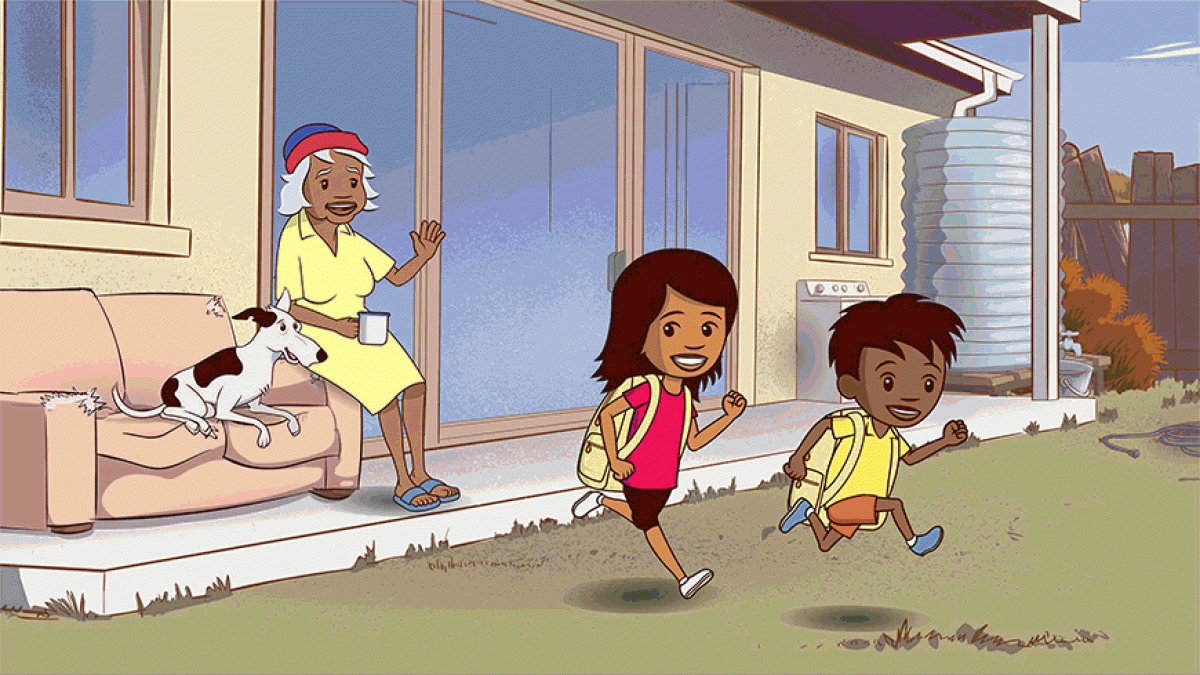ACTF News

This article was first published in Practical Literacy: The Early and Primary Years (PLEPY), Volume 28(2), pp. 11 - 13. It has been republished with permission from the Australian Literacy Educators’ Association.
Democratic participation
Understanding why and how we all play a part in our democratic society is an integral part of the education ecosystem. A robust democracy relies on active citizenship; this can look like students as individuals and communities learning how to research, pay attention, connect the dots, take action and persuade others using an evidence-based approach. These qualities – or ‘habits’ – in students deserve our support. When we nurture democratic participation in students well before the voting age, we build next generations who are well equipped for the challenges involved in active citizenship.
Seizing the opportunity to ‘make politics cool again’, the Museum of Australian Democracy (MoAD) and the Australian Children’s Television Foundation (ACTF) partnered in 2022 to develop primary and secondary teaching resources for the series. This article introduces these free teaching resources for English, Humanities and Social Sciences, and Media Arts, including examples of work from participating schools in Canberra.
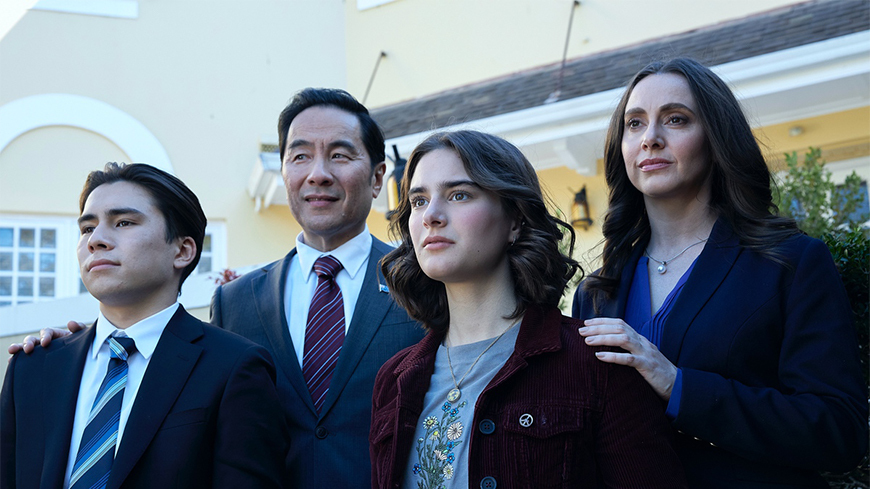
Introducing The PM’s Daughter
In this series, Catalina (who prefers the name Cat) is like any other teenager who seeks to be heard. There’s just one complication: her mother, Isabel, is the Prime Minister of Australia. How can Cat stand up for her beliefs when there is so much pressure to support her mum and be ‘the perfect daughter’? Over 10 episodes, Cat and her friends follow the work of environmental activist group Action Uprising and the hard-line alternative group, The Agitators. After discovering a plot to unseat The Prime Minister, Cat needs to rally her contacts - without creating an enormous political scandal or tearing a friend’s family apart.
The series represents diverse political views and explores topical issues including international trade, lowering the voting age, and secession. Perhaps most importantly for educational contexts though, it highlights student voice, agency and leadership, modelling how young people can take meaningful action on the local and global issues that matter to them. This impactful representation was entirely intentional, with series writer/creator Tristram Baumber stating:
“The inspiration for The PM’s Daughter lay in wanting to teach my children that they can change the world. I always knew that a story about climate action needed to sit at the heart of our show. I’m highly aware that the world is at a crucial moment in history, one that will determine the fate of future generations.”
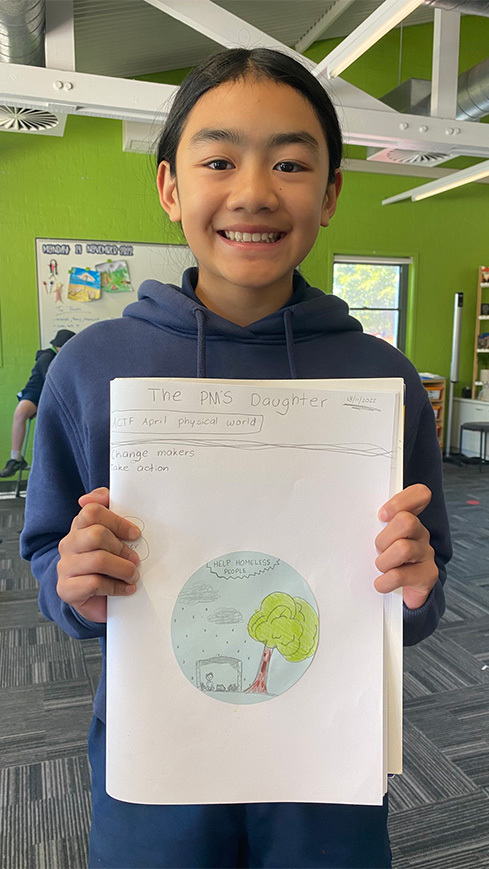
The PM’s Daughter in the classroom
The education resources for this series build knowledge of our democratic processes and civic responsibilities, with a strong focus on group work, media literacy and critical thinking skills.
Through three units of work, the Years 5 to 8 teaching toolkit champions student voice, agency and youth leadership – citizenship in action. Selected clips from the series, discussion starters and collaborative learning tasks are presented in student-facing screen sequences. These multimodal slideshows give students the opportunity to engage with content on the themes of effective campaigning, issues that matter, and the influence of media on audiences.
In developing these resources, the ACTF engaged Ahelee Rahman as a youth consultant. A Year 12 student and school captain at the time of writing, Ahelee is a passionate advocate for youth voices within our democracy. Who better to be a part of creating an educational resource for young people, than young people themselves?
Speaking to value of the series and resources, Ahelee said, “Young people have such unique perspectives to offer to our democracy, but we are excluded a lot of the time, either because we’re not taken seriously or simply because we don’t have the right to vote. But young people have such an important role to play in our democracy, and I find it really sad that a lot of us think we don’t need to care about politics until we turn 18. I think improving Civics and Citizenship education is the best way to get young people more involved.”
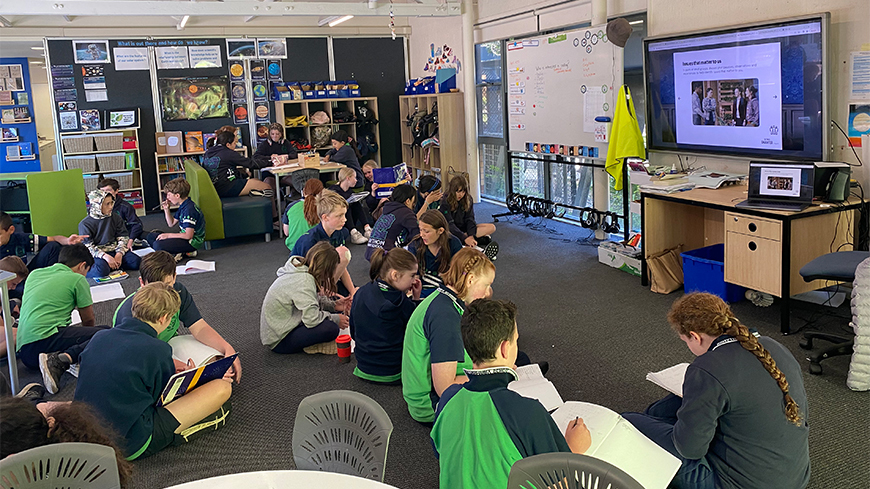
Students in Years 4 to 9 at two public schools in Canberra recently explored the ‘Issues that Matter’ unit of work. Working with the multi-modal screen sequence, students watched short clips from The PM’s Daughter series and engaged in class discussions. Following this, they reflected on issues relevant to their local communities and selected one issue of significance to work with.
Students were challenged to use only a few key words to summarise their chosen issue, and to design and incorporate an image to reinforce their message through visual communication. The premise was that this bite-size campaign content could be used in advocacy related to each student’s issue. This enabled students to persuade and influence, with big ideas distilled into short-form snapshots and effectively curated imagery.
Teachers across the two school contexts approached this lesson in different ways, with one class developing digital campaigning materials using computer-based design, and the other using analogue materials: workbooks and pencils. The lesson was equally effectively on both occasions, engaging students and building their political understandings and participation.
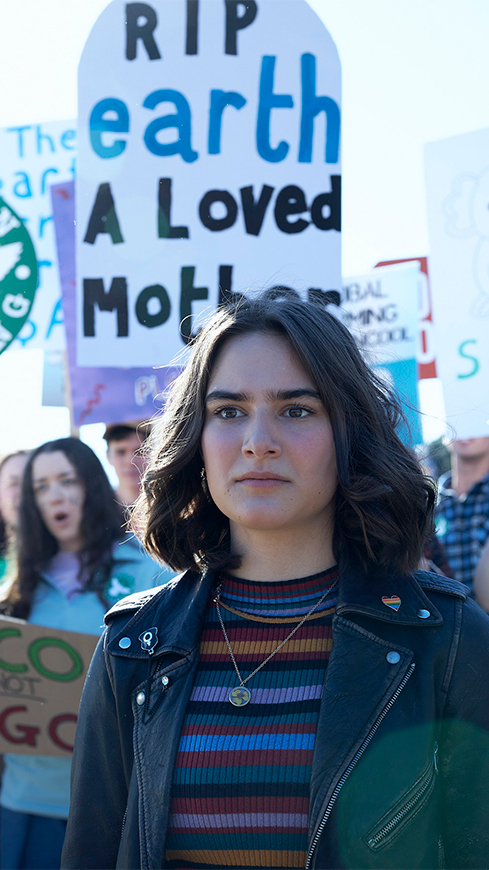
Conclusion
Providing platforms for students to respond to their worlds in the context of civics and citizenship matters. The PM’s Daughter reaches into a parallel Australia to offer us an unbiased space to be bold and teach political topics with rigour.
Reflecting on the aims of the project, MoAD Learning Manager Dr Stephanie Smith said: “Everyone has an important role to play in our democracy. It is essential that we support young people and acknowledge how valuable their voice is. We are so delighted to have contributed to this fantastic resource which will not only support young people to explore the many ways to be heard in our democracy, but also develop an understanding the role of the media, how it affects our perceptions and consider ways to strengthen our critical thinking skills.”
The PM’s Daughter is currently available to stream on ABC iview or purchase through the ACTF Shop. The free resources in this article can be downloaded from the ACTF and MoAD websites.
References
Original publication: Phillips, A. (2023). The PM’s Daughter: Popular culture engaging young people in politics. Practical Literacy: The Early & Primary Years (PLEPY), 28(2), 11 – 13.
The PM’s Daughter series: https://actf.com.au/shows/id/234/
The PM’s Daughter Teaching Toolkit (Years 5-8): https://actf.com.au/education/resources/res/10471



